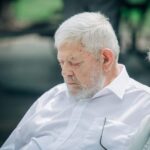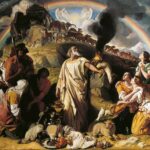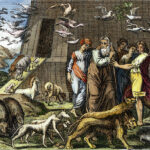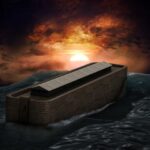1 Blessed is the man who walks not in the counsel of the wicked, nor stands in the way of sinners, nor sits in the seat of scoffers;2 but his delight is in the law of the LORD, and on his law he meditates day and night.3 He is like a tree planted by streams of water that yields its fruit in its season, … [Read more...] about In Memoriam: Lessons from My Father
Old Testament
Genesis – The Offering
Then Noah built an altar to the Lord and took some of every clean animal and some of every clean bird and offered burnt offerings on the altar. And when the Lord smelled the pleasing aroma, the Lord said in his heart, “I will never again curse the ground because of man, for the intention of man's heart is evil from his youth. Neither will I ever again strike down every living … [Read more...] about Genesis – The Offering
Genesis – The Covering
In the six hundred and first year, in the first month, the first day of the month, the waters were dried from off the earth. And Noah removed the covering of the ark and looked, and behold, the face of the ground was dry. In the second month, on the twenty-seventh day of the month, the earth had dried out. Then God said to Noah, “Go out from the ark, you and your wife, and your … [Read more...] about Genesis – The Covering
Genesis – The Raven and the Dove
At the end of forty days Noah opened the window of the ark that he had made and sent forth a raven. It went to and fro until the waters were dried up from the earth. Then he sent forth a dove from him, to see if the waters had subsided from the face of the ground. But the dove found no place to set her foot, and she returned to him to the ark, for the waters were still on the … [Read more...] about Genesis – The Raven and the Dove
Genesis – The Remembrance of God
"But God remembered Noah and all the beasts and all the livestock that were with him in the ark. And God made a wind blow over the earth, and the waters subsided. The fountains of the deep and the windows of the heavens were closed, the rain from the heavens was restrained, and the waters receded from the earth continually. At the end of 150 days the waters had abated, and in … [Read more...] about Genesis – The Remembrance of God




